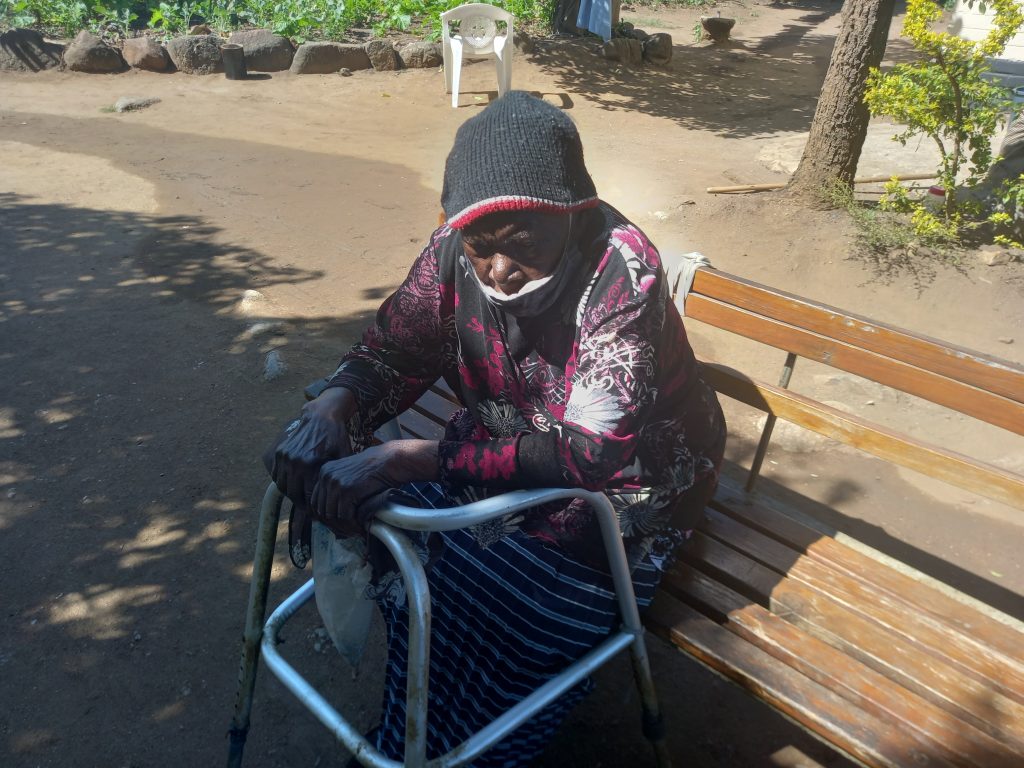
By Tatenda Chitagu/Hazvinei Mwanaka
MASVINGO, ZIMBABWE-The tolling bell marks lunchtime at Mucheke Old People’s home in Masvingo city, ending hours of sun basking for 18 elderly inmates at the institution nestled in the heart of the populous Mucheke High density suburb.
While others trudge to the dining hall, which is about five meters away from their rooms, one senior citizen turns down the offer and remains stuck on her chair.
“I am sick and tired of the habitual meal of sadza and plain vegetables or sadza with soya mince as relish,” she shouts.
Such meals are the order of the day at the underfunded institution, established in 1981 to cater for the country’s senior citizens. On very rare occasions, they eat sadza and beef, chicken or pork donated by well-wishers.
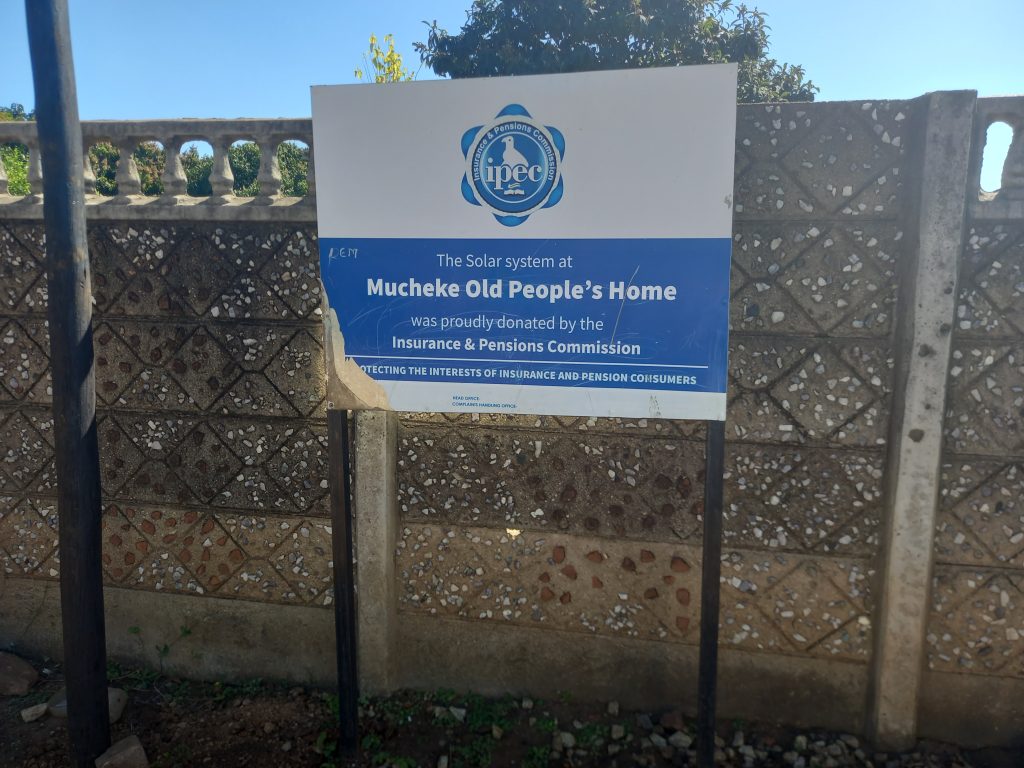
“While we have adequate stocks of the staple maize meal, relish is a problem. Sometimes we get help but we rely on soya mince and vegetables for relish. Sometimes they eat rice with no soup,” admits Reverend Chaka of the Baptist Convention Church of Zimbabwe, who is the administrator of Mucheke Old People’s home.
“When things are bad, we are worst hit because people who usually donate to us will be hard pressed. So we lack support if the economy is bad. As we are speaking, our solar are not working and we use firewood to heat water for them to bath. We do not have money to pay for our electricity, so we buy firewood,” laments Rev Chaka.
He appealed for funding to start projects like poultry for self sustenance. Currently, they only have a garden which they water from a solar powered borehole donated to them.
Most of the inmates-the oldest being 106 years-old-do not have relatives, according to Reverend Chaka. Some of them are from Zimbabwe-including a 60 year-old white inmate-but others are from Malawi and Mozambique.
Ten are women and the remainder are males.
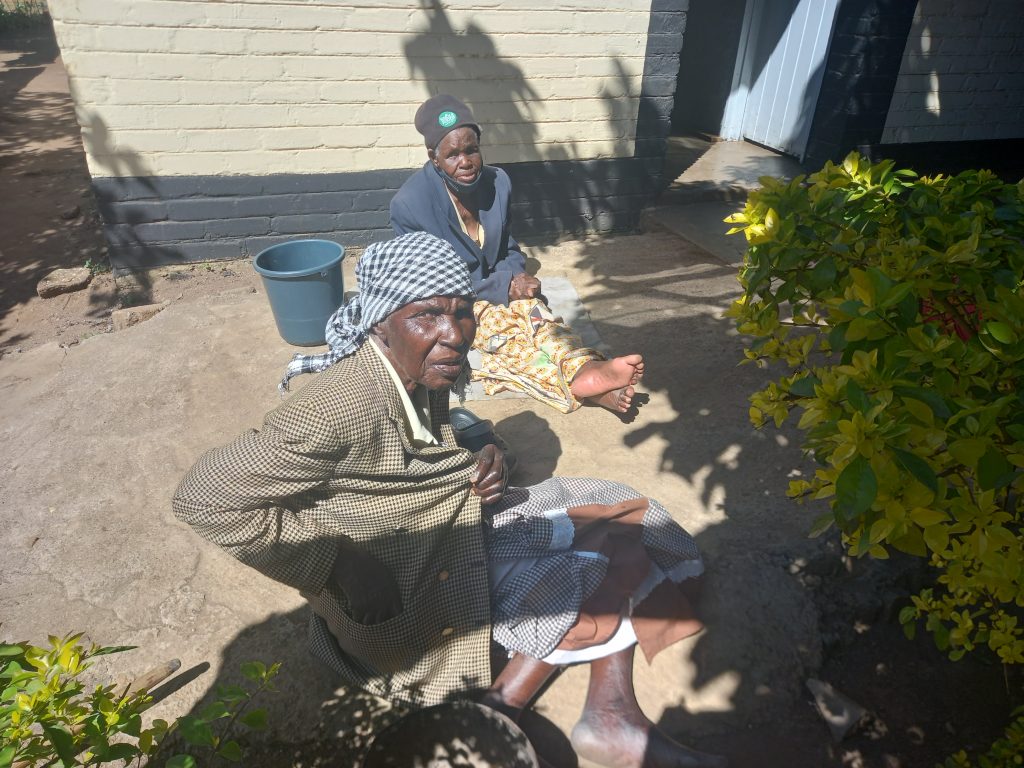
Apart from the poor, unbalanced diet, staffers at Mucheke Old people’s home lack detergents, toiletries and gloves, forcing the nurse aides to use plastics as gloves.
Dumped and forgotten?
While few inmates have relatives who come and check on them here and there, some do not have any, or the few surviving relatives they have never visit them, according to Dickson Mutamba (65), a long serving worker at Mucheke Old People’s home.
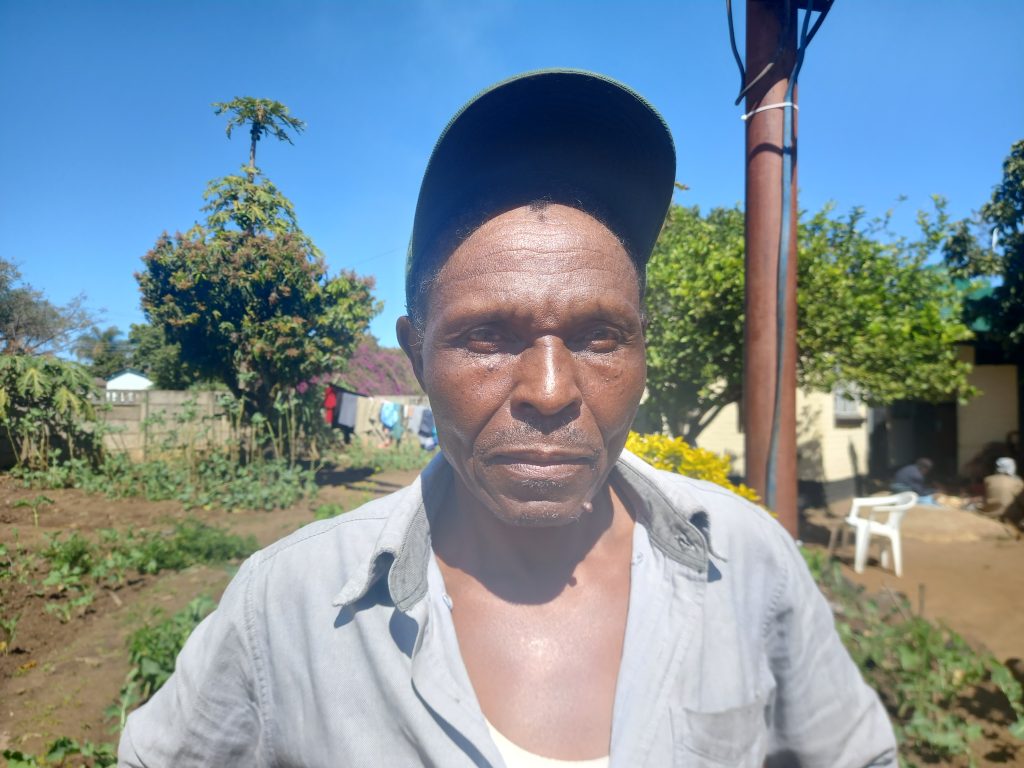
“Only one lady and the white guy has relatives who sometimes visit them. The rest do not get any visitors. Some women migrated from Malawi so when their husbands died, they did not have anywhere to go. Others were referred from the department of Social Welfare.
“Others were neglected by their relatives who found it hard to take care of them since some are wheelchair bound or cannot bath on their own. Some were out-rightly rejected by society or their relatives who believe in the myth that old people are witches,” said Mutamba, who started working at the institution in 1983.
Mutamba added that the tough economic conditions characterised by run-away inflation that has eroded salaries also makes their relatives abandon them.
“The economy is bad. Some of the aged need special care or may need diapers, yet relatives supposed to care for them will be unemployed, hence they are left on their own. Their relatives are afraid to come and see them here as they are afraid that we may discharge them and they leave with them.
“You will be surprised to know that there are a few inmates here who have children and relatives who are well up, but they shun their aged parents,” he said.
One centenarian housed at the institution, Ezekiel Gonomhene (106), from Nyajena communal lands in Masvingo South constituency, said he came at Mucheke Old People’s Home after realising that no-one could look after him.
“I have relatives but they cannot take good care of me. I had two children who died during the war of liberation while on the war-front. My wife is also late. I am only left with my sister who sometimes comes to see me,” said the centenarian.
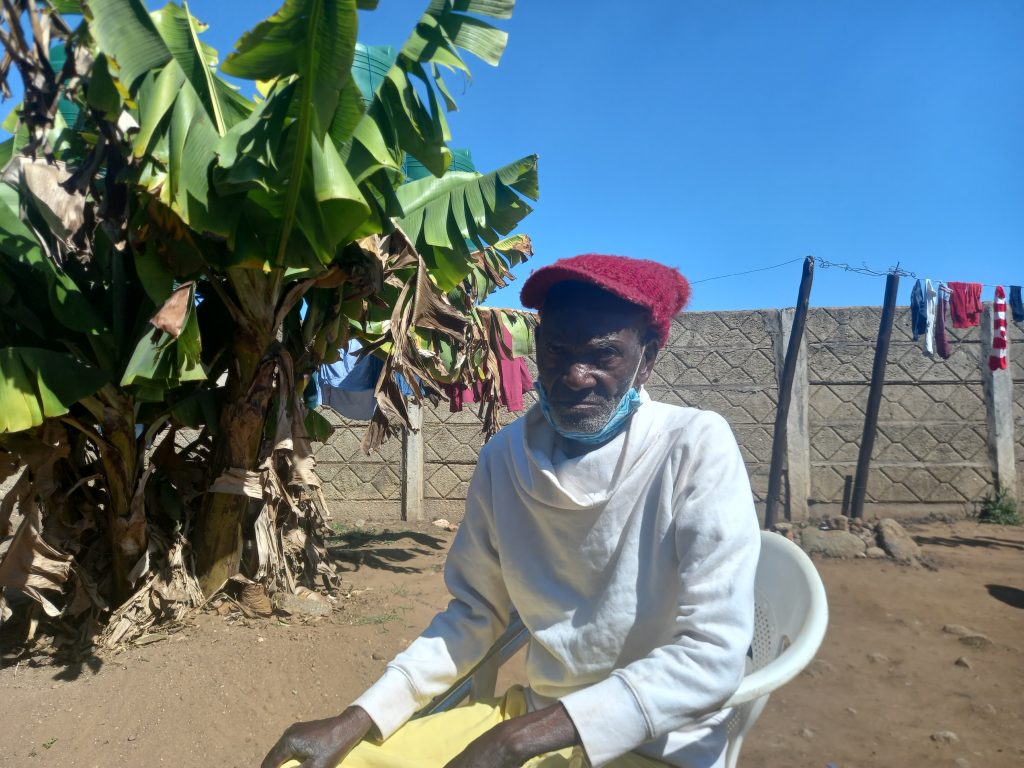
There are two full time workers who cater for the senior citizens. The rest are sociology or counselling students as well as nurse aides on attachment who wash and cook for them.
“There is no money to pay the workers, who often go for several months without getting their wages. It is like we are doing community service, and we have come to accept it,” Mutamba added.
Section 82 of the new Constitution mandates the state and families to give reasonable care and support, health care and medical assistance as well as financial support by way of social security and welfare to people aged 70 and above.
But such is not the case at the moment.
“Medication is a challenge because we do not have drugs, even though consultation is free at the hospitals. You know old people suffer from opportunistic infections because their immunity is now weak. We do not have money to buy drugs at the pharmacies.
“We need a visiting doctor for regular check-ups of the inmates. We also asked for a resident nurse from the Ministry of Health, but our request is yet to be met,” said Rev Chaka.
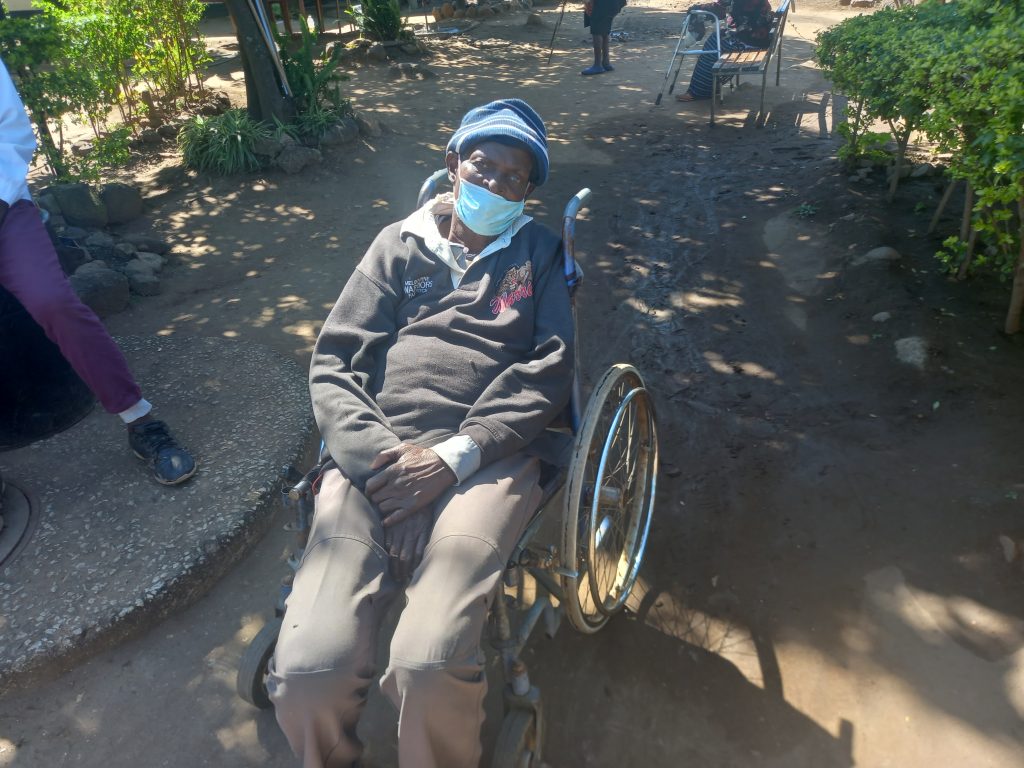
According the the 2012 Census count, there are an estimated 800 000 older persons in Zimbabwe, which translates to about 7% of the then total population of 13 million people.
Deputy Minister of Public Service, Labour and Social Welfare, Lovemore Matuke said the government is committed to supporting Older Persons across Zimbabwe.
“We enacted the Older Persons Act Chapter 17/11 that culminated in the establishment the Older Persons Board which is constituted by 15 members from various sectors, which is testament to our commitment to issues of the elderly. The government provides food and clothing through the social welfare department as well as cash transfers to Older Persons in Old Peoples’ Homes,” Matuke said.
He said he will investigate the problems affecting old people’s homes.
“I am not aware that there are old people’s homes that are struggling to feed our elderly citizens. I will have to find out and we will do spot checks.
We have our officers deployed in every district at our department of social welfare. The elderly should have adequate food provisions and have a balanced diet that is consistent with their ages,” Matuke said.
However, HelpAge Zimbabwe, a leading national organisation catering for the needs of senior citizens, said though the government has shown a lot of commitment to address the plight of the senior citizens, there still remains financial constraints because of harsh economic climate.
“Financial constraints hinder the government from supporting Old People’s Homes in its full capacity. Lack of financial assistance has led to the deterioration of infrastructure at Old People’s Homes coupled with lack of medications in most Old Peoples Homes and lack of basic needs such as vehicles or capital to start up income generating projects. A combination of these issues has played its role in facilitating a gloomy picture of Old Peoples Homes in Zimbabwe. Most Homes therefore struggle to take care of Older Persons because of these financial constraints,” said Priscilla Gavi, HelpAge executive director.
She called for a multi-stakeholder approach to capacitate old people’s homes.
“Collective efforts of both the Government and Non-Governmental Organisations are needed to fund-raise for Old Peoples’ Homes across Zimbabwe. Fighting for the rights of Older Persons is the responsibility of every Zimbabwean citizen. This will enable better living standards in Homes across Zimbabwe. Most Old Peoples Homes are privately owned and the owners are expected to fund-raise for their institutions,” Gavi said.
HelpAge urged communities to should ensure that Older Persons do not face discrimination, abuse, hunger and poverty which sometimes leads to their early demise.
“Older Persons should receive what they are entitled to for example free medical assistance, pensions, food and clothing and cash transfers. The issue of witchcraft has proved to be a silent pandemic that has maimed and in some instances killed Older Persons across Zimbabwe. Communities have believed that anyone labelled an Older Person is qualified to be called a witch/wizard. Hatred on Older Persons has brewed within various communities and has become justification for the perpetration of witchcraft driven violence,” she said.
Not all hope lost yet
“People are willing to help and they chip in if they have. Society has accepted that there are old people who should be helped as they need our love and care, irrespective of the fact that they are not our relatives,” said Wellington Ncube (26), a Great Zimbabwe University sociology student on attachment at Mucheke Old Peoples’ Home.
He added: “When dealing with the aged, you need patience. I must admit that at first i was not used to deal with the aged, but i have come to appreciate them. This is what lacks among the people who are supposed to look after the elderly and as a result they abandon them.
“But for me, taking care of the aged is my passion. I give them counselling and all the attention they need. When people grow old, they become demanding and patronising. It is not like they are a problem. They really entertain me sometimes.”
When it comes to clothing and bedding linen, the institution is well catered for as they are frequently given second hand clothes which would have been confiscated by the Zimbabwe Revenue Authority (ZIMRA) while being smuggled into the country.
Previously, when some of the elderly at Mucheke Old People’s Home died, they were given a pauper’s burial, but now a well wisher paid a local funeral parlour, Nyaradzo, and they now get a decent sendoff in coffins, Mutamba said.
Changing times
While Europeans believe in placing their elderly at old people’s homes, the tradition is currently frowned upon in African culture as they think it is ‘dumping their relatives to death.’
“Most Zimbabweans think placing your old relative at an old people’s home is equal to dumping them. But things are changing now and because of globalisation,others see it as normal. In fact, its a safe haven for them here as they get the love and care they need because many do not like the burden of taking care of them,” Ncube said.
He said on one instance, a man came with his elderly mother saying she could not get along with his wife who abused her.
“I know of one incident where a gentleman came with his mother and offered to pay for her upkeep and carer. He said his wife did not like his wife and she did not take good care of her. He had nowhere to put her since he does not have a sister or any other relative that was willing to take care of her,” Mutamba added.
Another inmate, Raina Mukono, who does not remember her age, said she is happy being housed at the old people’s home.
“I am happy and comfortable here, playing with my age mates. I came here with my husband who migrated from Malawi, but he latter died. I am only left with my brother, and two surviving kids out of the seven I had.
“One of my kids works at Madziva Mine where she is married, while the other son is not working. He is the one who rarely visits me,” she said.
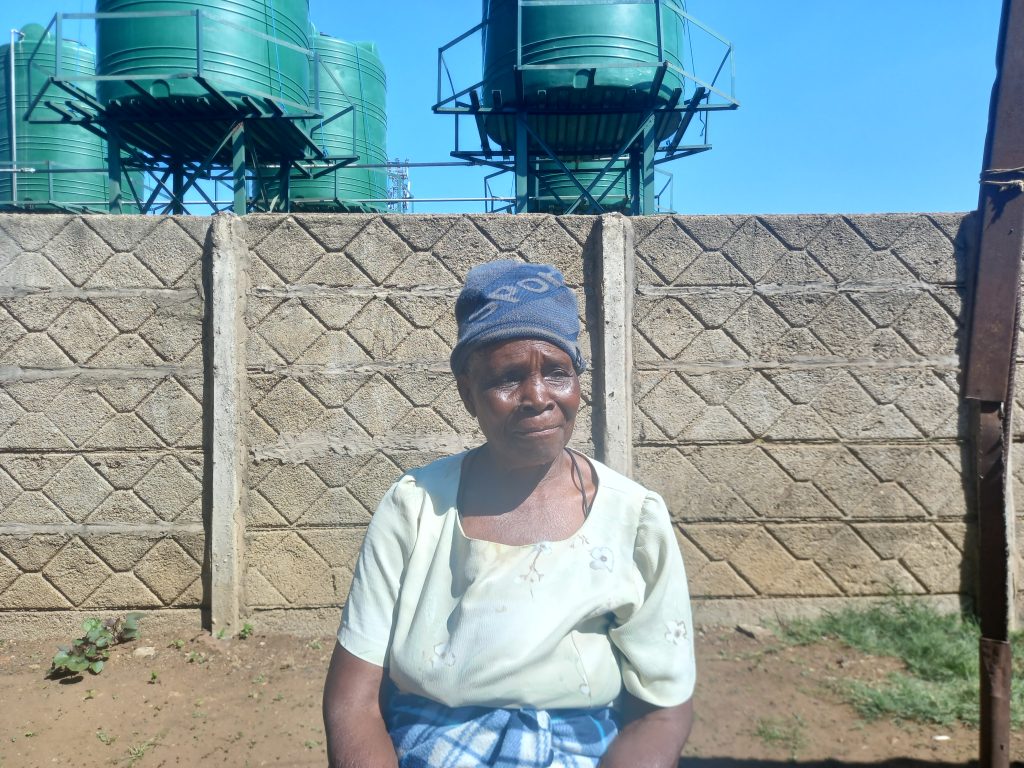
Guy Steyn (60), who was born in Mhangura from British migrants in Zimbabwe, said coming to the old people’s home was ‘the best ever move he made in his life’
“I could not fend for myself. I was once offered a house to stay in Bushmead residential area by my well wishers from Britain who own the house. But I had no-one to look after me. I am divorced and have four kids-two boys and two girls. The girls are married and are having their issues with their husbands. My other two sons communicate with me on a daily basis and they said I made the right choice by coming here,” he said.
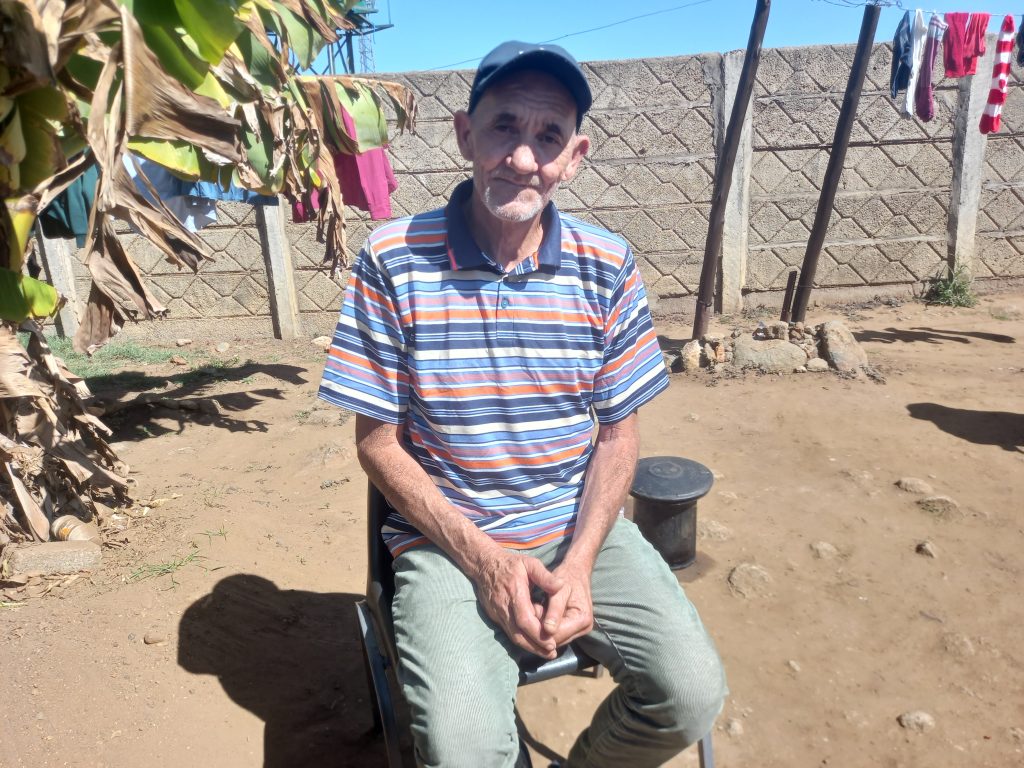
As the bell tolls another day for a meal at Mucheke Old Peoples home, it will be a matter of time before other inmates will join in the hunger strike against perennial sadza and plain vegetables or sadza and soya mince.

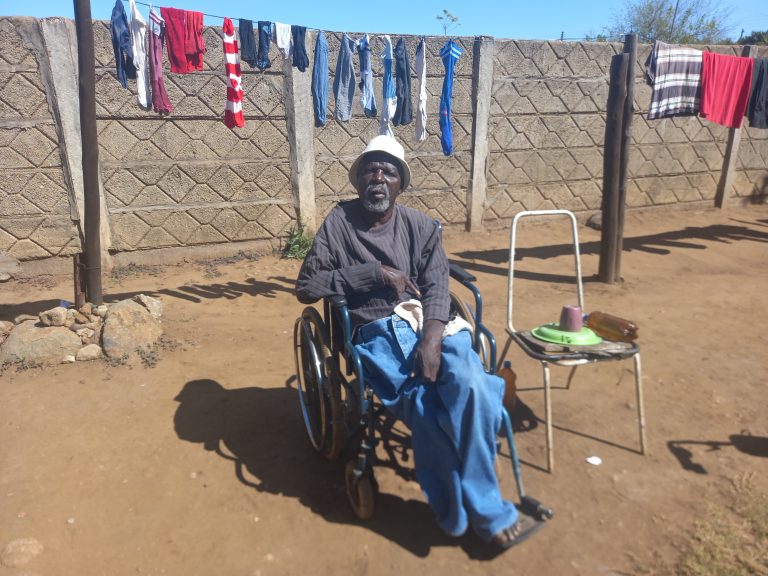
2 responses to “When aging becomes a ‘curse’ in Zimbabwe”
Keyy issues have been highlighted here. The instution receives some considerable support from well-wishers though, but it is critical to investigate if donations are not misappropriated.
Well – constructed, however there is need to make investigations to find out whether donations are not stolen at these institutions.